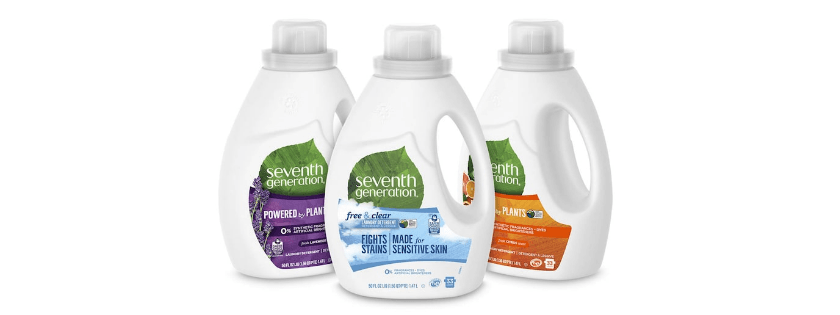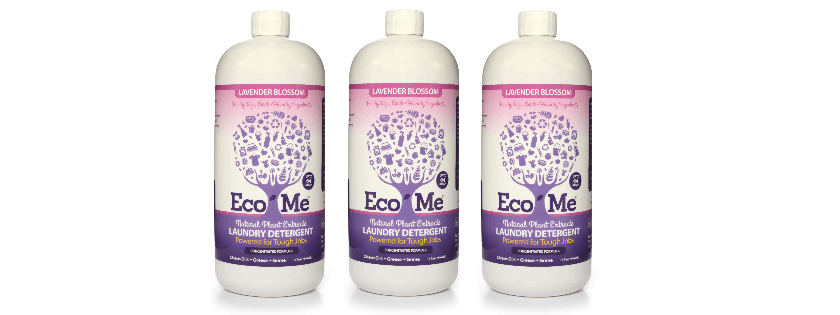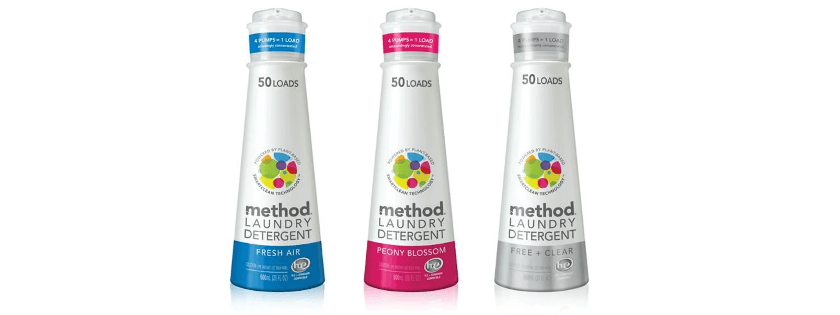Introduction: The Importance of Environmentally Friendly Detergents
Detergents are essential for daily household cleaning, from laundry to dishwashing. However, the surge in conventional detergent use has prompted concerns about their environmental and health impacts. Choosing an environmentally friendly detergent not only supports a healthier home by reducing exposure to harmful chemicals but also helps protect the planet's delicate ecosystems. This comprehensive guide explores what makes a detergent eco-friendly, reviews top sustainable detergent options, and highlights the benefits of making the switch.
What Is an Environmentally Friendly Detergent?
An environmentally friendly detergent is a cleaning product designed to minimize harm to the environment and human health. Typically, these detergents avoid harsh chemicals such as phosphates, chlorine bleach, optical brighteners, synthetic fragrances, and dyes that can pollute water systems and disrupt aquatic life. Instead, they use biodegradable, plant-based surfactants derived from natural oils that break down easily without leaving toxic residues.
Eco-friendly detergents often come in packaging made from recycled or sustainable materials, further reducing their ecological footprint. These products are formulated to provide effective cleaning performance while being gentle on fabrics, skin, and the environment.
Top Environmentally Friendly Detergents Reviewed
1. Seventh Generation Natural Laundry Detergent

Seventh Generation’s detergent is plant-based and suitable for traditional and high-efficiency washers. It features plant-derived enzymes that effectively remove stains and odors, complemented by natural essential oils for a fresh scent. Its biodegradable ingredients ensure aquatic safety.
- Pros: Gentle on fabrics; free of artificial fragrances; safe for people, pets, and aquatic life; gray water safe.
- Cons: Higher price point compared to conventional detergents.
2. Eco-Me Natural Liquid Laundry Detergent

This hypoallergenic detergent uses plant and mineral ingredients free from harsh chemicals like phosphates and synthetic dyes. It is EWG (Environmental Working Group) certified toxic-free and ideal for sensitive skin.
- Pros: Safe for sensitive skin; plant-based cleaning agents; concentrated formula reduces packaging waste.
- Cons: Slightly more expensive due to natural ingredients.
3. Method 8X Concentrated Laundry Detergent

Method’s detergent is an ultra-concentrated formula made from biodegradable plant-based materials. It avoids petrochemicals, synthetic fragrances, and dyes, with packaging that is 100% recyclable.
- Pros: Highly concentrated; eco-friendly packaging; biodegradable ingredients; free from harmful chemicals.
- Cons: Slightly pricier upfront but cost-effective over time due to concentration.
4. Ecover Zero Non-Bio Washing Powder

Ecover Zero is a plant-based powder detergent free from synthetic fragrances, dyes, and brighteners. It comes in recycled packaging and features a low-foam formula to reduce water and energy consumption.
- Pros: Biodegradable plant ingredients; gentle on aquatic life; sustainable packaging; energy and water efficient.
- Cons: May be costly compared to some alternatives.
5. ECOS Earth Friendly Products Natural Liquid Laundry Detergent
ECOS detergent is phosphate-free and made from natural ingredients like coconut oil. Certified by the EPA’s Design for Environment Program, it promises high environmental standards and minimal aquatic toxicity.
- Pros: Plant-based and biodegradable; phosphate-free; environmentally certified; gentle on sensitive skin.
- Cons: Less suited for heavily soiled clothes; higher price point.
Comparison Table of Top Eco-Friendly Detergents
| Brand | Type | Biodegradable | Packaging | Price Range | Skin Friendly |
|---|---|---|---|---|---|
| Seventh Generation | Liquid | Yes | Recycled Plastic | Moderate | Yes |
| Eco-Me | Liquid | Yes | Plastic Bottle | Higher | Yes |
| Method 8X | Highly Concentrated Liquid | Yes | 100% Recycled & Recyclable | Moderate-High | Yes |
| Ecover Zero | Powder | Yes | Recycled Cardboard | Moderate-High | Yes |
| ECOS Earth Friendly | Liquid | Yes | Recycled Plastic | Moderate | Yes |
Why Are Traditional Detergents Harmful to the Environment?
Conventional detergents commonly contain phosphates, chlorine bleach, and synthetic fragrance chemicals that disrupt aquatic ecosystems by promoting harmful algae blooms and lowering oxygen levels essential for aquatic organisms. Volatile organic compounds (VOCs) like formaldehyde contribute to poor air quality and urban smog. Moreover, non-biodegradable plastic packaging exacerbates landfill waste and ocean pollution.
These pollutants not only harm wildlife but also pose health risks to humans through contaminated water sources and air pollution.
Additional Benefits of Environmentally Friendly Detergents
Health Benefits
Eco-friendly detergents reduce exposure to toxic chemicals which can cause skin irritation, allergies, or respiratory issues. Their gentle formulas are ideal for sensitive skin and reduce the risk of chemical build-up on clothing.
Cost and Performance
Though many eco-friendly detergents come at a slightly higher upfront cost, their concentrated formulas mean you use less per wash. This concentration often results in long-term savings. Many provide comparable or superior cleaning power without compromising fabric integrity.
Environmental Impact
Biodegradable ingredients break down naturally, reducing pollution in waterways. Sustainable packaging and reduced chemical waste contribute to lowering your overall carbon footprint.
Common Misconceptions About Eco-Friendly Detergents
- Myth: Eco-friendly detergents don't clean as well.
Fact: Many plant-based detergents have enzymes and surfactants that effectively remove stains and odors. - Myth: They're too expensive.
Fact: Concentrated formulas and reduced usage balance out cost over time. - Myth: They can't be used with all washer types.
Fact: Most eco detergents work with both traditional and high-efficiency machines.
How to Choose the Best Environmentally Friendly Detergent for You
When selecting an eco-friendly detergent, consider these factors:
- Ingredients: Opt for biodegradable, plant-based surfactants without phosphates or synthetic dyes.
- Certifications: Look for third-party approvals like EWG Verified, EPA Design for Environment, or USDA Organic.
- Packaging: Choose products with recycled and recyclable packaging to reduce waste.
- Sensitivity Needs: Select fragrance-free or hypoallergenic options if you have sensitive skin.
- Concentration: Concentrated detergents are cost-effective and reduce environmental impact.
Conclusion: Making the Sustainable Choice in Detergent
Choosing the best environmentally friendly detergent supports healthier homes, preserves aquatic ecosystems, and combats pollution. By switching to natural, biodegradable, and sustainably packaged detergents, you contribute to reducing harmful chemicals in waterways and lower your carbon footprint. While eco detergents may involve slightly higher initial costs, their benefits to your health, the environment, and garment longevity make them a valuable investment for a sustainable future.
